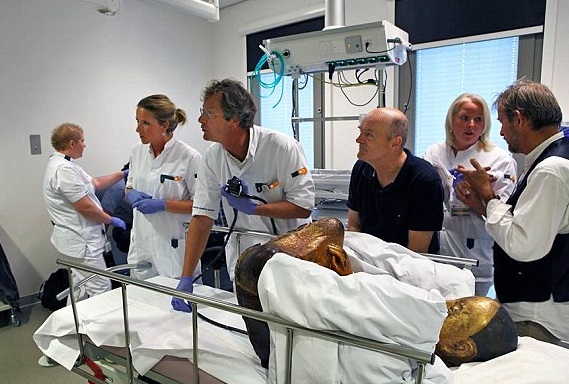
Museum researchers of the Drents Museum in the Netherlands were shocked to find a 1,000-year-old mummified monk inside an antique Gautam Buddha Statue.
In a statement, the museum said that the mummy looks like a statue of Buddha, which on further scanning revealed that it belonged to a Buddhist monk.
The statement said that monk may have lived around 1100 years.
Researchers were in for a surprise when they found the mummy in a lotus position and the corpse fitting the dimension of the statue.
Further investigations through CT and endoscopy revealed that the internal organs were removed and replaced with messages and scripts in Chinese.
It has also been reported that the mummy was of Liu Quan, who happened to be the master of the Chinese Meditation School.
This has given a lot of information and light on whether he had gone through the self-mummification process, which is known to be grueling.
Self-mummification was practiced in the past when strict diet, poison, and self-control techniques were used extensively. The technique was popular in Japan, China, and Korea.
Usually, the monk going through the process is given nuts and seeds for 1000 days, which follows another 1,000 days, when he is given bark and roots, getting rid of all fat.
After which, a toxic mixture is given to induce fluid loss and vomiting. Hence, the body becomes poisonous, which ensures bacteria and insects don’t feed on it.
The monk is then placed in a tomb, where he was required to sit in the lotus position, but he would get access to air through a hole. Also, he is given a bell that he would ring each day, so that others knew he was alive.

